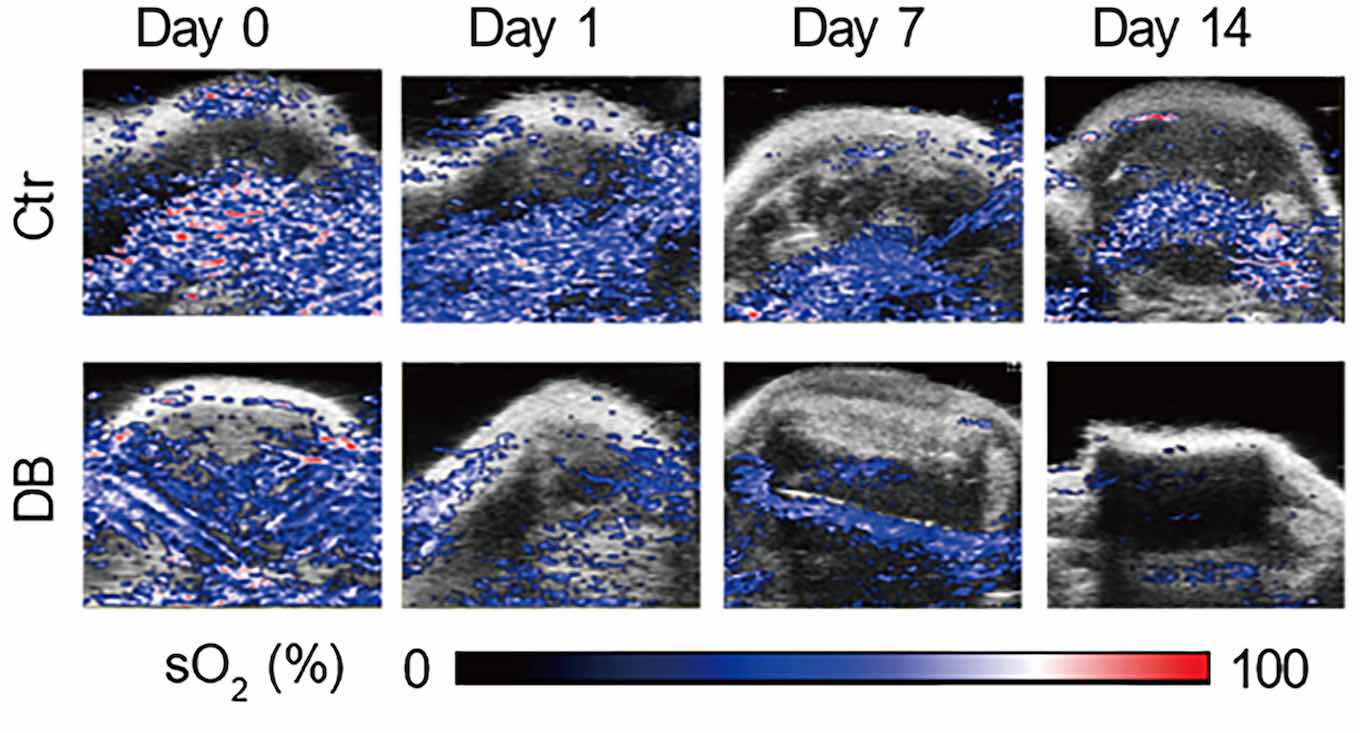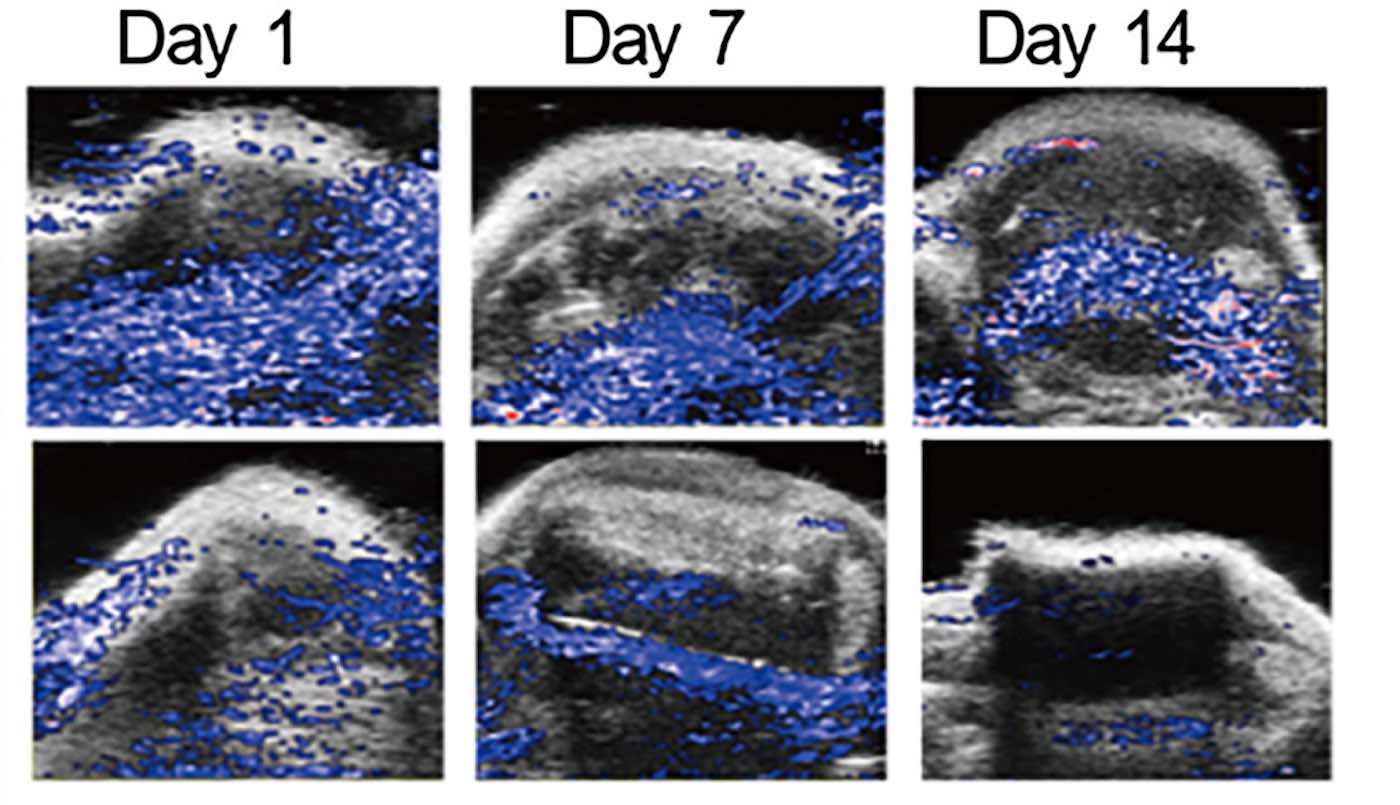A tiny implant has placed a big target on the back of breast cancer tumors in mice, according to the results of a new study reported by South West News Service and New Scientist.
In the small study, a self-charging battery enabled a new class of medications to kill the tumors—and it took just two weeks to obliterate them, while leaving healthy tissue alone.
Salt water injected into the surrounding area causes the battery to consume oxygen, which singles-out the cancer cells and creates a condition called hypoxia.
By creating a hypoxic environment, the battery significantly boosts the efficiency of HAP cancer medications (hypoxia-activated pro-drugs) that seek to exploit this trait by only killing hypoxic cells. Previously, no HAPs have been approved for clinical use due to limited evidence of their effectiveness.
“After 14 days, the Tumors in the five mice that received both the working battery and HAP treatment had decreased by an average of 90 percent,” said lead author Professor Fan Zhang, of Fudan University in Shanghai, China, “with four of these mice experiencing complete tumor disappearance.”
Conversely, the tumors in the other mice groups either remained the same size or continued to grow.

The Chinese team placed the device inside the armpits of 25 lab rodents with breast cancer. Other groups received no treatment, HAP drugs only, a non-functional implanted battery, or just the working battery.
POPULAR: Seafood Delicacy That May Hold Cure for Cancer is Named Mollusk of the Year
The battery can operate for up to 500 hours within mouse tissue, producing very low voltage electricity.
“The battery can cover the Tumor and persistently consume the oxygen within it for more than 14 days, which is much longer than previous agents that worked for, usually, not more than two days,” explained Prof. Zhang.
“Hypoxia-activated prodrugs aim to take advantage of this feature by only targeting hypoxic cells—minimizing damage to healthy cells and reducing side effects.”
CHECK OUT: Protein Changes in Blood Could Become New Test for Catching Breast Cancer Up to 2 Years Early
Reacting to the study published in Science Advances, Cambridge University Prof. Randall Johnson said he believed inducing hypoxia in a tumor may increase the risk the cancer will spread.
“While this didn’t appear to occur in these mice, the costs and benefits of the battery’s use in people needs to be assessed before any human treatment.”
SHARE With Cancer Researchers By Sharing the News Social Media…




















